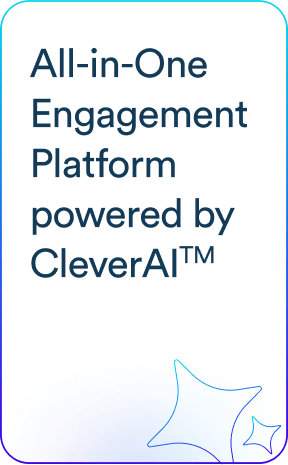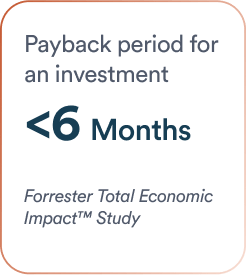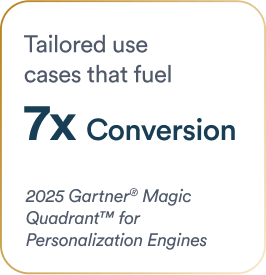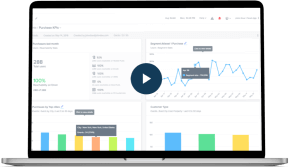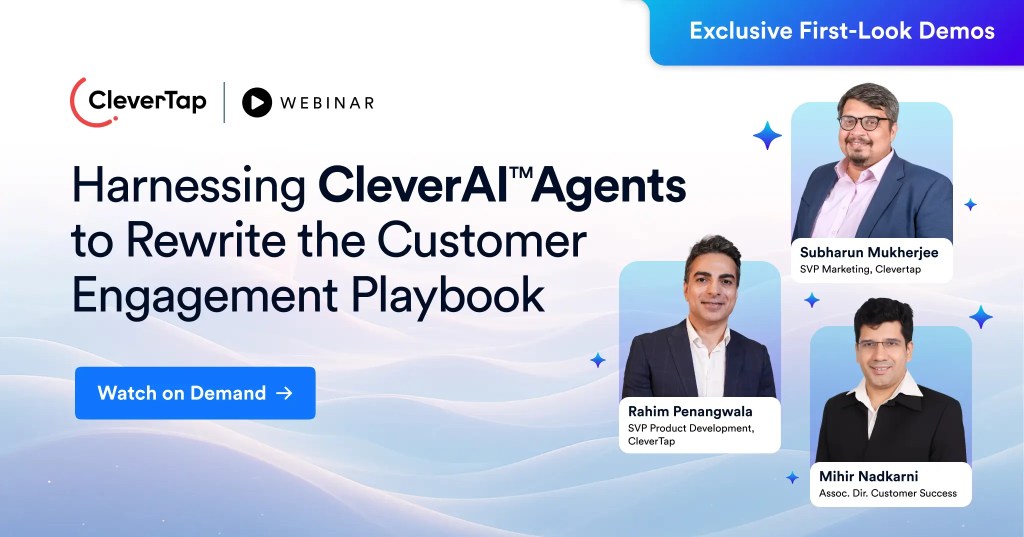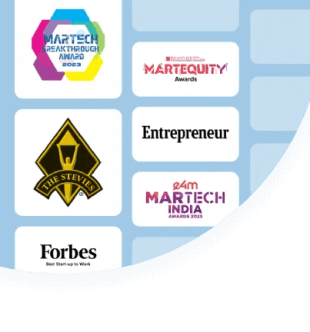Just two years ago, AI was a fun experimental tool. Today, it’s almost an operational necessity. With 88% of marketers now using AI daily, the shift is undeniable. Generative AI (genAI), autonomous agents, and predictive analytics are raising the bar on 1:1 individualization, experimentation, and ROI in ways that seemed impossible just a few years ago.
AI in marketing is changing more than just tools and tactics. It is reshaping how teams are built, how they operate, and how they succeed.
Current state of AI in Marketing
Today, marketers mostly use genAI but they are barely scratching the surface on what AI can do.
Prompt-based content creation remains the most common application.
Beyond content, pattern recognition capabilities, analytics, recommendation and,reasoning models are also a popular use case for AI.
However, these use cases are still largely reactive. They respond to prompts or analyze data with limited context, often without deeper understanding of user history or intent.
The current wave of AI adoption, the AI Agent, adds a context-aware AI that is capable of executing or performing actions nearly autonomously. A simple example: previously, AI would suggest flight options based on a user’s past preferences, or budget. Now, an AI travel assistant can book the entire trip for a group of people, while optimizing for factors like loyalty points and everyone’s convenience.
This evolution is reshaping the structure of marketing teams. AI is no longer just an assistant for outputs. It’s becoming a strategic copilot, capable of testing, optimizing, and executing autonomously.
Below are several ways this agentic shift is transforming the way marketing teams operate.
New Roles & Team Structures
Marketers will have to take on hybrid roles that involve more creative thinking, strategy, and managing a blended human-AI workforce. New titles are emerging across industries like Prompt Engineers, Agent Architect, GTM Engineers, Customer Journey Architect, and roles focussed on AI governance.
In the very near future, we will have to work with other humans and non-humans. AI will enable smaller, more agile teams to orchestrate campaigns, analyze data, and make real-time decisions. Leadership now requires more than marketing intuition. It demands AI fluency, ethical judgment, and a mindset geared toward experimentation and velocity and ability to work with non-human coworkers.
Marketing Workflow Evolution
AI agents will only get smarter and will be able to parse data and patterns from hundreds of thousands of customer profiles keeping in mind the larger goal and guidelines set by the marketer. Agents can even design and execute campaigns by themselves and individualise messages for each of the brand’s customers. In effect, this creates an always-on marketing machine that is continuously learning and adapting. The ability to extract insights from complex datasets through conversational interfaces with the AI will replace traditional analytics skills.
The marketer’s role will be less about managing tasks and more about managing and guiding outcomes. Success will depend on orchestrating multiple agents and ensuring they work seamlessly.
Skillset Shift & AI Fluency
The fundamental shift is from doing to learning and directing. Constant upskilling to achieve AI fluency is becoming a core requirement. It’s not just knowing how to use a tool, but understanding how to guide AI outputs, evaluate quality, and shape narratives in collaboration with machines.
Critical skills include:
- Prompt engineering
- Data storytelling
- AI oversight and bias detection
- Creative direction informed by AI insights
- Orchestrating agents
The most valuable professionals will be those who can seamlessly bridge creative and technical domains. Further, any professional who has their own team of agents has a leg up over the competition.
Data, Ethics & Trust
With great power comes great responsibility, and significant challenges. AI hallucinations, algorithmic bias, and privacy concerns require proactive management. Brands that fail to address these issues risk losing customer trust and facing regulatory penalties.
Marketing teams will need to closely monitor agent-generated outputs to ensure accuracy and alignment with brand standards. Establishing clear guidelines, and adhering to them, will become a core part of the marketer’s role. They will also have to monitor for any false or substandard output and find ways to eliminate them.
Data will become even more critical than it does today – not just the presence of data but also volume of data – more volume, the better the use of AI. Alongside traditional datasets, synthetic data is also emerging. This type of data is generated by AI to mimic real-world patterns, and marketers will need to learn how to distinguish it from actual customer data and decide where it fits into their analysis.
What Teams Can Do Now
AI transformation doesn’t require a full overhaul. Here’s how to position your team for success:
Start small but start now. Assign a few team members to experiment with AI tools across messaging, targeting, or reporting. Learn what works before scaling across the organization.
Upskill intentionally. Invest in AI literacy training across content, data, and martech teams. Focus on practical applications rather than theoretical concepts.
Rethink hiring. Seek hybrid talent with both technical and creative fluency. The best candidates will demonstrate curiosity about AI tools and ability to work alongside intelligent systems.
Embed AI governance. Create frameworks for transparency, review processes, and ethical alignment before you need them. Establish clear guidelines for AI use, disclosure, and human oversight.
Learning & Adaptability: Cultivate a culture of continuous learning to keep your team’s creative and strategic thinking sharp.
Looking Ahead
AI will not replace marketers. But marketers who embrace AI as a partner will outperform those who don’t. The best teams of tomorrow will be the ones that combine human intuition and creativity with machine intelligence and scale.
This isn’t a loss of control. It’s a shift in focus: from execution to insights. From campaigns that take months to those optimized in real time. From rigid processes to dynamic, learning-driven systems.
The future of marketing isn’t just more automated. It’s more human than ever, with AI helping us become better storytellers, sharper strategists, and more responsive to the customers we serve.
Agnishwar Banerjee 
Leads content and digital marketing.Expert in SaaS sales, marketing and GTM strategies.
Free Customer Engagement Guides
Join our newsletter for actionable tips and proven strategies to grow your business and engage your customers.

